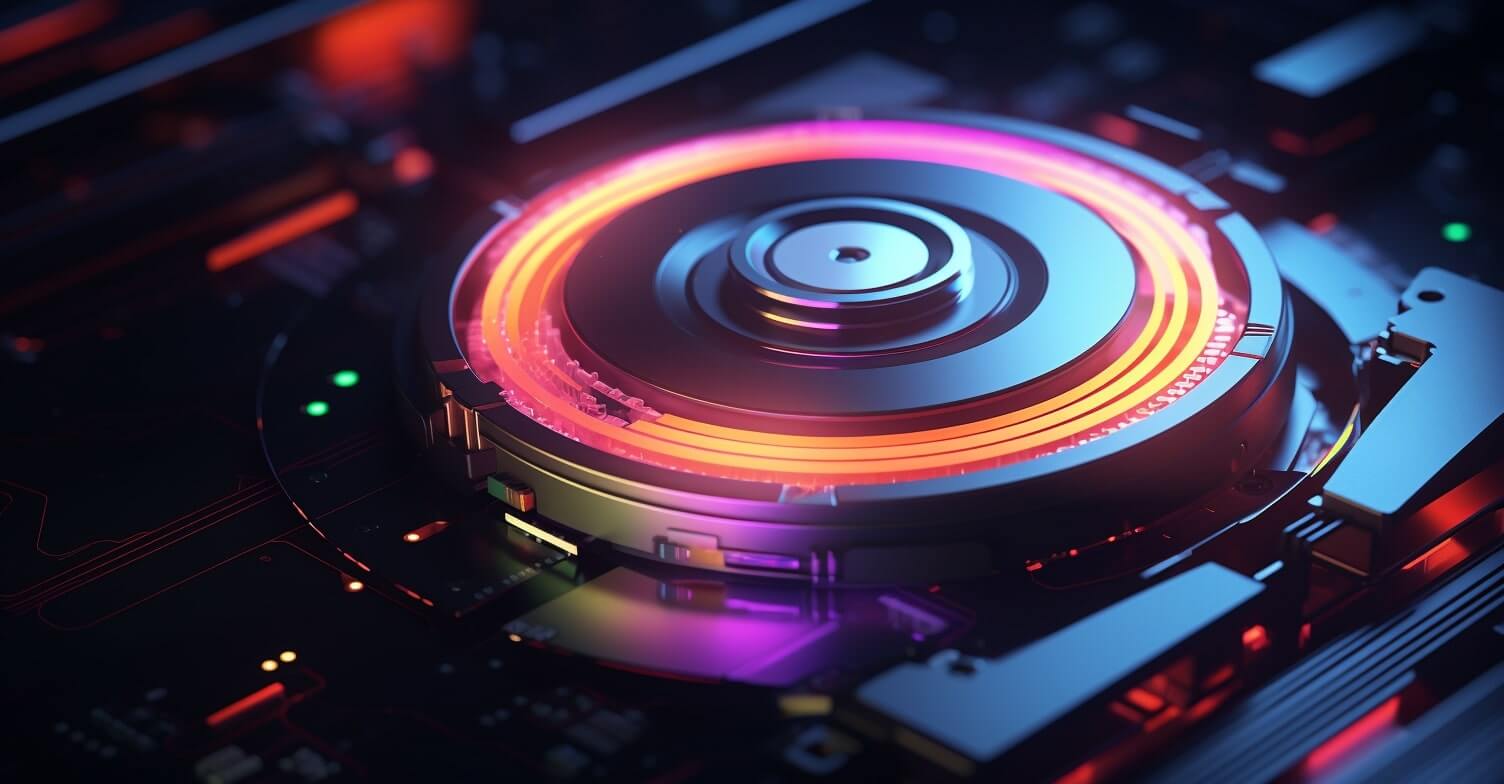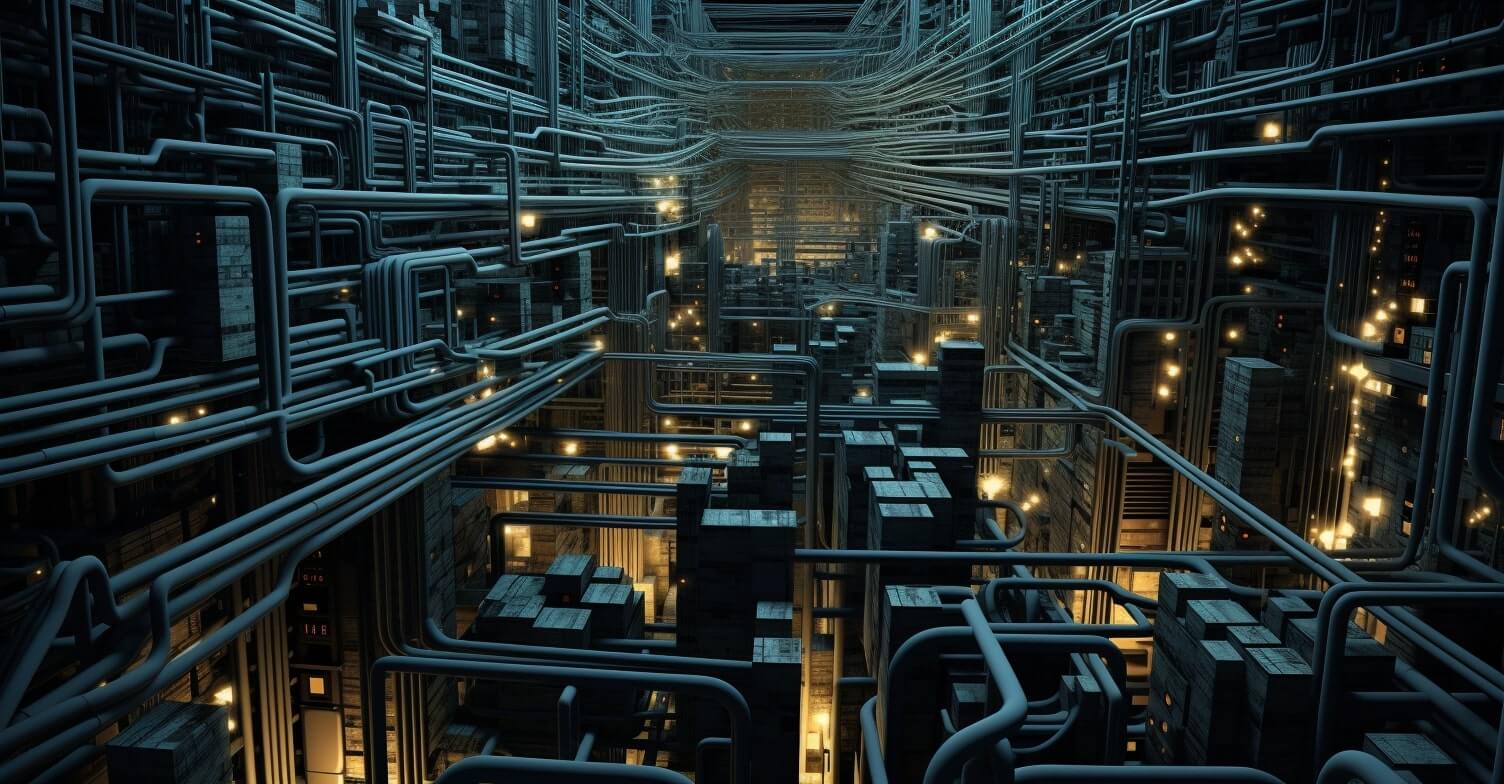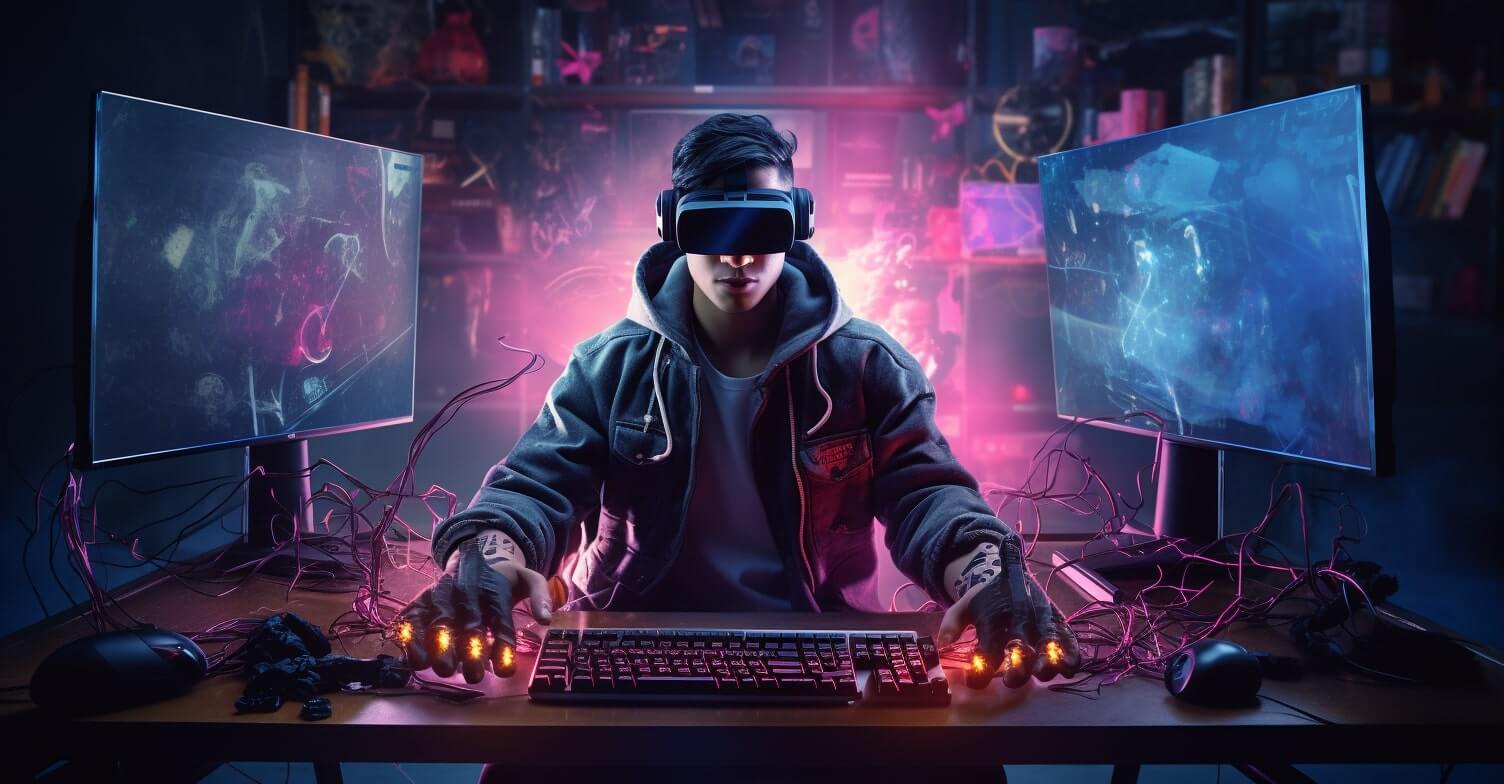Table of Contents
- What is Bottlenecking?
- The Culprits Behind Bottlenecking
- Types of Bottlenecking
- The Impact of Bottlenecking on System Performance
- Bottlenecking: The Gamer’s Nemesis
- Real-world Impact of Bottlenecking: A Case Study
- Upgrading Components: The Hardware Solution to Bottlenecking
- Optimizing Software: The Non-Hardware Approach
- Preventing Bottlenecking: An Ounce of Prevention…
- What is Bottlenecking?[+]
- 1. What does “bottlenecking” mean in computing?
- 2. How does bottlenecking affect system performance?
- 3. What are common causes of bottlenecking?
- 4. How can I identify bottlenecks in my system?
- 5. What are the potential solutions for bottlenecking?
- 6. Can software lead to bottlenecking?
- 7. Is bottlenecking only related to gaming PCs?
- 8. How crucial is bottlenecking in SEO?
- 9. How often should I check for bottlenecks in my system?
- 10. Can bottlenecking cause hardware damage?
In the world of computing, ‘bottlenecking’ is a term that often raises eyebrows. It’s a phenomenon that can significantly impact the performance of your system, particularly when you’re gaming or performing other high-end tasks. But what exactly is bottlenecking? How does it affect your system’s performance, and most importantly, how can you solve it? In this article, we’ll delve into the concept of bottlenecking, understand its impact, and explore practical solutions to this issue. Whether you’re a gamer, a video editor, or just someone who wants their system to run smoothly, this guide will help you understand and tackle bottlenecking effectively. So, let’s get started on this journey of understanding bottlenecking, its impact, and solutions.
What is Bottlenecking?
Let’s dive right into the heart of the matter. Bottlenecking. It sounds like a term you’d use when you’re stuck in a traffic jam, doesn’t it? Well, in the world of computing, it’s not too far off.
According to Intel, bottlenecking in computing refers to a situation where the capacity of an individual component limits the performance of the system as a whole. Imagine trying to pour a gallon of water through a straw. No matter how much you try, the straw can only handle so much water at a time. That’s bottlenecking for you!
The Culprits Behind Bottlenecking
Now that we’ve got the definition down, let’s talk about the usual suspects that cause bottlenecking.
First off, it’s important to note that any component in your system can potentially become a bottleneck. It all depends on the task at hand. For instance, if you’re trying to run the latest AAA game on an old graphics card, you’re going to have a bad time. The graphics card simply can’t keep up with the demands of the game, causing a GPU bottleneck.
On the other hand, if your CPU is older and slower, it might not be able to process data as fast as your other components would like. This is a CPU bottleneck.
But it’s not always about age. Sometimes, even new components can cause bottlenecks if they’re not compatible with each other. For example, pairing a high-end CPU with a low-end GPU can lead to a GPU bottleneck, as the GPU can’t keep up with the CPU.
Ever noticed a red light on your motherboard? That could be a sign of a bottleneck too!
Types of Bottlenecking
Bottlenecking isn’t a one-size-fits-all kind of problem. There are several types, each with its own set of challenges.
CPU Bottlenecks occur when your CPU can’t keep up with the demands of the other components or the software you’re running. This is common in tasks that require a lot of processing power, like video editing or 3D rendering.
GPU Bottlenecks, on the other hand, happen when your graphics card can’t render frames as fast as your CPU can process them. This is often the case in graphically intensive tasks like gaming.
Disk Bottlenecks happen when your storage device can’t read or write data fast enough. This can slow down everything from boot times to game load times.
Network Bottlenecks occur when your network connection can’t handle the amount of data being sent or received. This can cause slow download speeds, lag in online games, and buffering in streaming videos.
For a more detailed look at the different types of bottlenecking, check out this article on Techguided.

| Bottleneck Type | Impact on System Performance |
|---|---|
| CPU Bottleneck | Slower processing times, lag in demanding tasks |
| GPU Bottleneck | Low frame rates, stuttering in graphics-intensive tasks |
| Disk Bottleneck | Longer load times, slower system performance |
| Network Bottleneck | Slow download speeds, buffering in streaming, lag in online games |
The Impact of Bottlenecking on System Performance
So, we’ve established what bottlenecking is, but what does it mean for your system’s performance?
Well, imagine you’re trying to drive a sports car on a dirt road. The car has the potential to go fast, but the road conditions are holding it back. That’s what bottlenecking does to your system. It prevents it from reaching its full potential.
When a component in your system can’t keep up with the rest, it slows everything down. This can lead to slower processing times, lag, and even system crashes in severe cases. It’s like trying to run a marathon with a pebble in your shoe. Sure, you can still run, but it’s going to hurt!
Ever wondered why your internet is so slow even though you’ve got a high-speed plan? Bottlenecking could be one of the hidden reasons.

Bottlenecking: The Gamer’s Nemesis
For gamers and those involved in high-end tasks like video editing, bottlenecking is a particularly nasty foe.
In gaming, a bottleneck can cause low frame rates, stuttering, and lag, turning your epic gaming session into a slideshow. It’s like trying to play a fast-paced action game with a controller that only responds half the time. Frustrating, right?
For video editors, a bottleneck can mean longer render times and slower previews. It’s like trying to paint a masterpiece with a toothbrush. Sure, it’s possible, but it’s going to take a lot longer!
Want to see how a bottleneck can affect your gaming performance? Check out this handy FPS Bottleneck Calculator from CPUAgent.
Real-world Impact of Bottlenecking: A Case Study
Let’s take a look at a real-world example of bottlenecking.
Consider a gaming build with a Ryzen 7 5800X and a Radeon RX 6800 XT. On paper, this setup should be able to handle any game you throw at it with ease. But what happens if you pair it with a slow, old hard drive?
The hard drive becomes a bottleneck. It can’t load game data as fast as the CPU and GPU can process it, leading to long load times and stuttering in games. It’s like trying to feed a hungry lion with a teaspoon. It’s not going to be happy!
In conclusion, bottlenecking can have a significant impact on your system’s performance, especially in high-end tasks like gaming and video editing. But don’t worry, all is not lost. In the next section, we’ll explore some solutions to this pesky problem. Stay tuned!
Upgrading Components: The Hardware Solution to Bottlenecking
So, we’ve established that bottlenecking can be a real party pooper. But fear not, there are ways to fight back, and one of the most effective is upgrading your components.
Think of it like this: if your car isn’t fast enough, you could upgrade the engine, right? The same principle applies to your computer. If your GPU is causing a bottleneck, consider upgrading to a more powerful one. If your CPU is the culprit, a faster CPU could be the answer.
But remember, it’s not just about power. Compatibility is key. Pairing a high-end CPU with a low-end GPU, or vice versa, can lead to a bottleneck. So, make sure your components are well-matched to get the most out of your system.
For more tips on upgrading your components, check out this guide from TechSoup.

| Bottleneck | Recommended Upgrade |
|---|---|
| CPU | Faster and more modern processor |
| GPU | More powerful graphics card |
| RAM | Increase the memory capacity |
| Storage Drives | Upgrade to faster SSDs |
| Network | Upgrade to a higher bandwidth connection |
| Software | Update drivers and optimize software for better performance |
Optimizing Software: The Non-Hardware Approach
But what if you can’t afford to upgrade your components, or if you’ve already got the latest and greatest hardware? Well, there’s another way to combat bottlenecking: software optimization.
Software optimization involves tweaking your system settings, updating drivers, and optimizing your software to run more efficiently. It’s like tuning your car for better performance.
For instance, updating your GPU drivers can often lead to significant performance improvements. Similarly, optimizing your game settings can help alleviate GPU bottlenecks.
Not sure how to update your drivers? Don’t worry, we’ve got you covered. Check out our guide on how to update your BIOS/UEFI.
Preventing Bottlenecking: An Ounce of Prevention…
As the old saying goes, an ounce of prevention is worth a pound of cure. This is especially true when it comes to bottlenecking.
When building or upgrading your system, it’s important to consider potential bottlenecks. This means choosing components that are well-matched and suitable for your needs.
For example, if you’re building a gaming PC, you’ll want to choose a CPU and GPU that can handle the games you want to play without causing a bottleneck. If you’re into video editing, you’ll need a powerful CPU and plenty of RAM.
Not sure which CPU to choose for your gaming build? Check out our guide on the best CPUs for RX 6800 and 6800 XT graphics cards.
In the end, understanding and preventing bottlenecking can help you get the most out of your system. So, don’t let bottlenecking get you down. Fight back with knowledge and the right tools!
What is Bottlenecking?
1. What does “bottlenecking” mean in computing?
- Bottlenecking refers to a situation where one component in a computer system slows down the overall performance.
2. How does bottlenecking affect system performance?
- Bottlenecking reduces system efficiency, causing delays and lower speeds.
3. What are common causes of bottlenecking?
- Common causes include outdated hardware, limited RAM, slow storage drives, and CPU/GPU mismatches.
| Component | Potential Bottleneck |
|---|---|
| CPU | CPU-bound tasks |
| GPU | GPU-intensive applications |
| RAM | Insufficient memory for processes |
| Storage Drives | Slow read/write speeds |
| Network | Limited bandwidth |
| Software | Poorly optimized programs |
4. How can I identify bottlenecks in my system?
- Identify bottlenecks by using performance monitoring tools like Task Manager or third-party software.
5. What are the potential solutions for bottlenecking?
- Solutions include upgrading hardware, increasing RAM, using SSDs, and ensuring compatible components.
6. Can software lead to bottlenecking?
- Yes, poorly optimized software can strain system resources and cause bottlenecks.
7. Is bottlenecking only related to gaming PCs?
- No, bottlenecking can affect any computer system, including servers and workstations.
8. How crucial is bottlenecking in SEO?
- Bottlenecking in SEO refers to slow-loading pages or server issues, impacting user experience and search rankings.
9. How often should I check for bottlenecks in my system?
- Regularly check for bottlenecks, especially after significant hardware or software changes.
10. Can bottlenecking cause hardware damage?
- Unlikely, but prolonged overheating due to heavy bottlenecking might lead to hardware stress.


